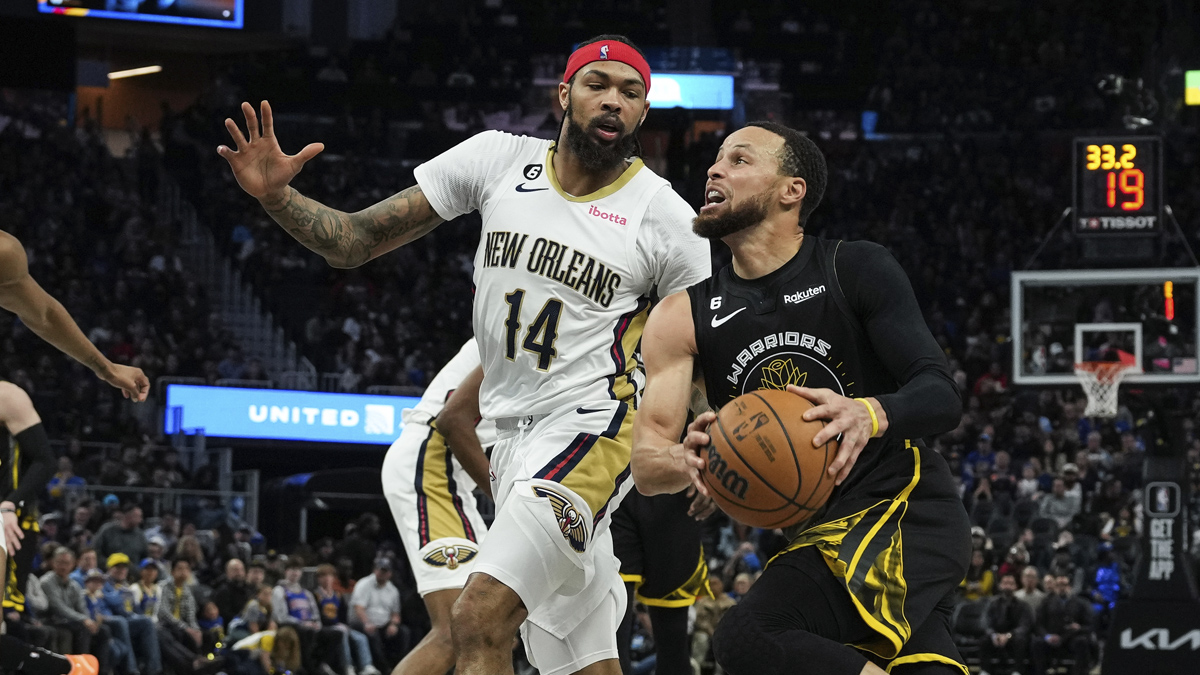As much as he wants to participate in the Olympics and earn a gold medal, sooner rather than later, Stephen Curry generally derives perspective through a big-picture lens. He is, at the bottom, a practical thinker.
Which is why, according to league sources, he will not be part of the Team USA delegation that travels to Tokyo for the Summer Olympic Games in Tokyo.
For someone in his position, a 33-year-old veteran approaching his last NBA megadeal and seeking to extend his prime, this decision is rich with wisdom.
Stay in the game with the latest updates on your beloved Bay Area and California sports teams! Sign up here for our All Access Daily newsletter.
Though Curry at some point will divulge his reasons, at least one seems clear. The list of NBA players who have spent much, if not all, of this postseason watching from the sidelines is extensive. Even frightening.
Among those battling injuries and missing games: Mike Conley (Utah Jazz), Anthony Davis (Los Angeles Lakers), Luka Doncic (Dallas Mavericks), Joel Embiid (Philadelphia 76ers), Danny Green (76ers), James Harden (Brooklyn Nets), Serge Ibaka (Los Angeles Clippers), Kyrie Irving (Nets), LeBron James (Lakers), Kawhi Leonard (Clippers), Donovan Mitchell (Jazz) and Trae Young (Atlanta Hawks).
Among the key players injured before the postseason: Jaylen Brown (Boston Celtics), Spencer Dinwiddie (Nets), Gordon Hayward (Charlotte Hornets, missed play-in game), Jamal Murray (Denver Nuggets), Victor Oladipo (Miami Heat) and Mitchell Robinson (New York Knicks).
That’s a total of 18 players – 15 of which are younger than Curry.
Golden State Warriors
And it’s reasonable to believe at least some of those injuries are linked to the compressed schedule dating back to the 2020 bubble. The Warriors were not in the bubble, but their 2020-21 season was squeezed as tight as the other 29 teams. Even finely conditioned athletes can tolerate only so much.
“It’s been an exhausting season for everybody, for every team, every player,” Warriors coach Steve Kerr said after a five-game road trip in April. “The COVID protocols, the lack of emotional connection. Not being able to see family or friends on the road, go out to dinner, all the normal things that you do to kind of fill up your cup and complete your social life. You don’t have any of those things.”
To spend a few minutes around Curry is to realize not only that he abhors injuries but also that he detests acknowledging them. It’s a reflexive response to those early-career injuries that led some to label him as “injury prone.”
After playing the final two months of the season with a hairline fracture in his tailbone, the last thing he’d want for his body is to sustain an injury that conceivably is related to a demanding competitive workload.
Curry attributed his brilliant performance last season to his offseason training and preparation with personal trainer Brandon Payne. He obviously liked the results, and so did the Warriors.
RELATED: Warriors' best-case, worst-case lottery scenarios
Having developed his physique from scrawny teenager to defined thirtysomething, Curry is well-acquainted with his anatomy. Knows it better than anyone. Listens closely to messages from his mind and body. And his family.
Spending two weeks training and three more traveling to and from Tokyo – with games scheduled from July 24 to Aug. 6 – is a lot to ask. That’s five weeks on the road, away from family and friends, in a place issuing warnings about the pandemic. There was plenty of isolation during the regular season. More? No thanks.
Curry would love to add an Olympic medal to his list of achievements. But his first professional priority is to the Warriors. After missing the playoffs by the slimmest of margins, he wants no part of repeating that experience.
He feels he is doing the right thing for himself and his loved ones. It would irresponsible to argue otherwise.


